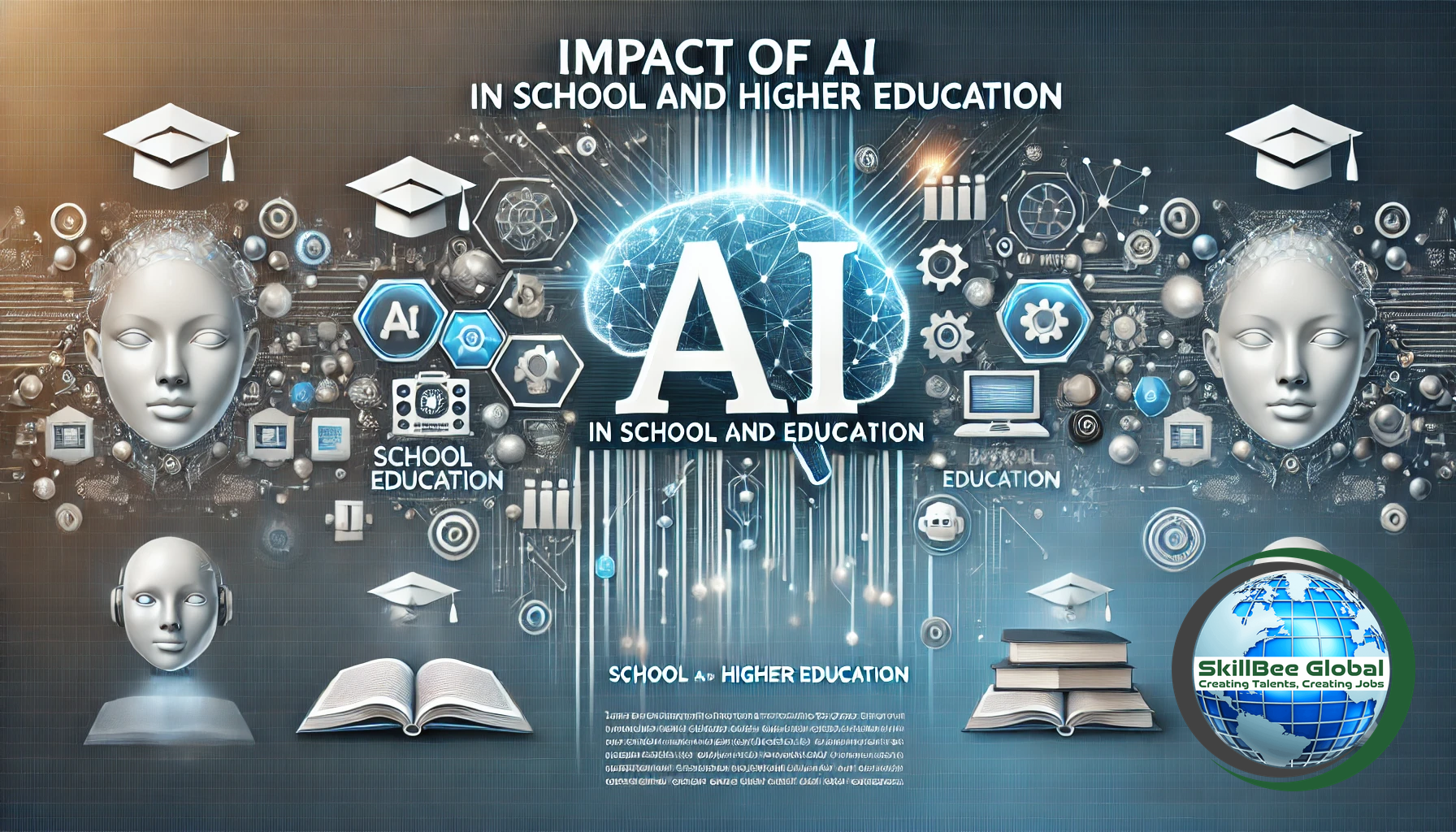
SKILLBEE supports Satya Nadella’s views on how AI works, its benefits across various domains, and the importance of ethical AI to avoid potential dangers.
Understanding How AI Works
Artificial Intelligence (AI) functions by processing large amounts of data through advanced algorithms that simulate human intelligence. Using machine learning (ML), AI systems learn from data, identify patterns, and make predictions or decisions. Neural networks, particularly deep learning models, mimic the human brain’s structure, enabling AI to perform tasks like speech recognition, image processing, and language translation. This "learning from data" approach empowers AI to continuously improve and adapt to new information, making it a transformative technology across industries.
Benefits of AI Across Domains
AI offers remarkable benefits across a multitude of sectors, transforming how we live, work, and solve problems:
- Healthcare: AI assists in diagnostics, drug discovery, and personalized treatment plans, revolutionizing patient care and speeding up medical research.
- Finance: AI-powered tools detect fraud, automate trading, and provide financial insights, enhancing security and efficiency in financial services.
- Education: Personalized learning algorithms help educators tailor experiences to individual students, improving engagement and academic outcomes.
- Retail: AI optimizes inventory management, customer service, and personalized marketing, enhancing the overall consumer experience.
- Agriculture: AI-driven tools analyze weather patterns and crop health, helping farmers make informed decisions to increase yield and sustainability.
- Manufacturing: Predictive maintenance and automation streamline operations, reduce costs, and improve safety and quality control.
- Transportation: Self-driving cars and intelligent traffic systems enhance road safety and reduce congestion.
- Customer Service: Chatbots and virtual assistants provide immediate responses to customer inquiries, improving service quality and response times.
- Environment: AI assists in monitoring climate data, conserving resources, and developing sustainable solutions.
The Dangers of AI if Not Ethical
While AI presents numerous benefits, Nadella emphasizes the necessity of ethical AI to mitigate risks. Without ethical considerations, AI can pose serious dangers:
- Bias and Discrimination: If trained on biased data, AI systems can reinforce and amplify existing inequalities, leading to unfair outcomes in hiring, lending, and criminal justice.
- Privacy Violations: AI-driven surveillance systems can intrude on individual privacy, potentially leading to unauthorized data collection and misuse.
- Misinformation: AI-generated deepfakes and automated disinformation campaigns can deceive the public, erode trust, and fuel conflicts.
- Job Displacement: Unchecked automation may displace jobs, causing economic hardship without adequate plans for workforce transition and upskilling.
- Loss of Human Oversight: Over-reliance on autonomous AI systems in critical areas could lead to unforeseen failures or ethical dilemmas, especially if AI operates beyond human control or understanding.
Conclusion
AI’s potential to reshape industries and address global challenges is vast, but realizing these benefits responsibly requires a commitment to ethical AI. This means developing transparent, accountable, and fair AI systems that prioritize human well-being and trust. Nadella’s call for ethical AI serves as a reminder that with great technological power comes the need for equally great responsibility, ensuring that AI remains a force for positive, equitable change across society.
Do not forget to watch the Video by Satya Nadella
Chinnappan Paul
Educational and Business Strategist
Comments (0)
Categories
Recent posts


Upskilling Employees -Top 10 Benefits ...
8 Aug 2024
Projected Hiring Trends in 2025 Indian ...
11 Mar 2025
The Importance of Skill Education: A ...
8 Aug 2024




